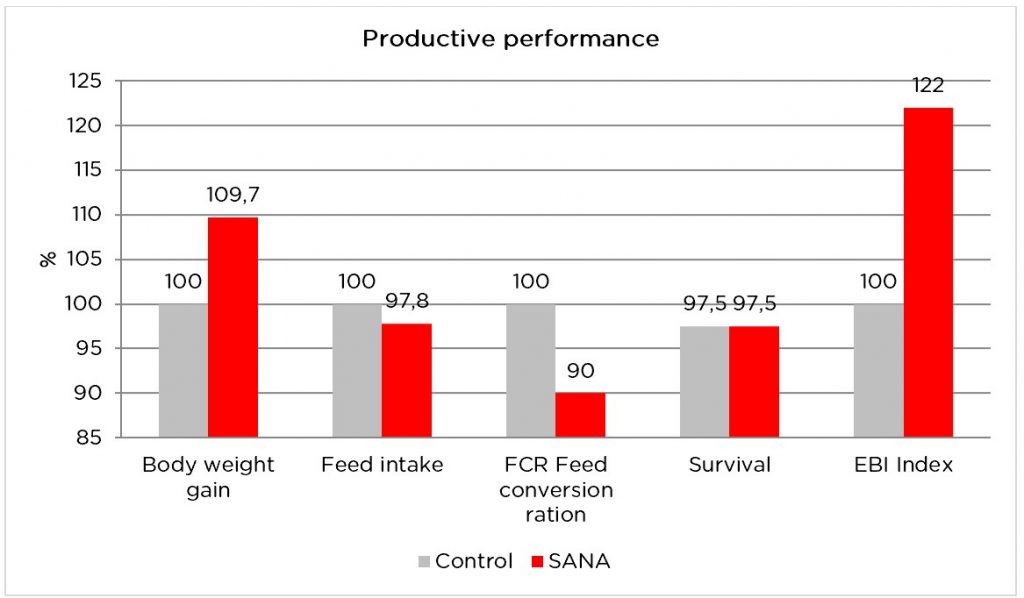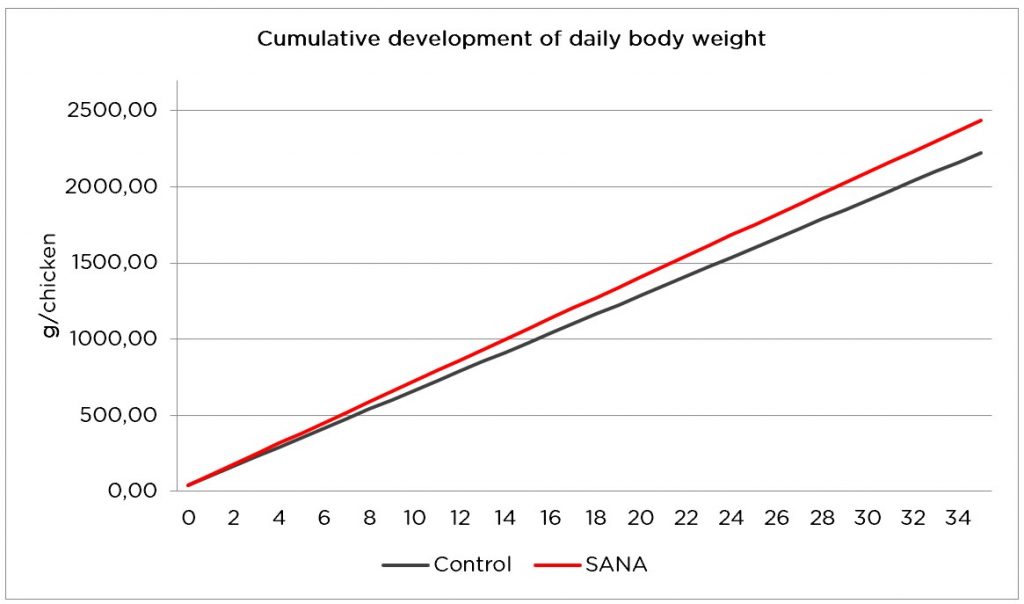Belgorod, Russia (November 05, 2015) – As a primary source of animal protein, the poultry sector offers a valuable repository to bridge the gap between demand and the availability of balanced nutrition. Poultry production, particularly broiler production is the quickest way to increase the availability of high-quality protein for human consumption. Since the feed cost alone contributes to about 70-75% of the total cost of production, economically poultry production is, therefore, possible only when the feed cost is being reduced and efficiency of feed utilization is increased. The production of low-quality feed has created variety of problems for the broiler industry resulting in poor performance and lower returns. Some valuable nutrients in feed are wasted because the birds are not able to utilize them. This may be due to several reasons like lack of digestive enzymes, insufficient time for digestive activity, sub clinical infection and inadequate processing of feed ingredients. To achieve a profitable balance among the cost of feed, the broiler performance, and quality of product, certain additives; are available in the market for use in broiler ration. Claims have also been made by manufacturers for numerous others benefits like improved feed efficiency, more meat, dry droppings and effective defense against diseases and enhanced acceptability of the product.
The present study was therefore, planned to investigate the effect of feed additive Sanbio SANA on the performance of the broiler chicken.
This project is being carried out within the collaboration between the Belgorod State Agricultural University named after V. Gorin (BSAU named after V.Gorin) – Russia, GEOCON WEST – Russia and SANBOS GmbH – Germany.
1. Introduction
The objective of this trial was to evaluate the efficiency of Sanbio SANA added into diets for broiler chickens from hatch until 38 days of age compared to broiler chickens fed similar diets but without addition of these products. The trial was performed by targeting the sensitive parameters procedure performance (body weight, body weight gain, feed intake, feed conversion ratio).
2. Materials and methods
During the 38-day-feeding period 40 broiler chickens were assigned to treatments without and with supplementation of Sanbio SANA. On the first day of trial and at the end of each following week productive performance (body weight, body weight gain, feed intake, feed conversion ratio) was measured per pen (replicate unit) from 01 to 38 days of age. The trial was run without adverse technical events (e.g. power failure, feed/water failures, etc.).
Table 1. Data
Treatment |
Unit |
Control |
SANBIO SANA |
Control vs. SANA |
Broiler chickens |
40 |
40 |
||
Sex |
Male |
Male |
||
Breed |
Cobb |
Cobb |
||
SANBIO SANA |
kg tonne-1 of diet |
0 |
0.5 |
|
Body weight at start |
g |
41.05 |
41.00 |
|
Body weight at end |
g |
2,410 |
2,640 |
|
Weight gain |
g |
2,368.95 |
2,599.00 |
+230.05g |
Feed intake |
g |
3,962.50 |
3,875.00 |
-87,5g -2,2% |
FCR Feed conversion rate |
g |
1.68 |
1.51 |
– 0,17 – 10% |
ADG Average daily weight gain |
g/d |
62.34 |
68.39 |
+6,05g +9,7% |
Survival |
Pc |
39 |
39 |
|
% |
97.5 |
97.5 |
||
EBI * |
361 |
441 |
+80 +22% |
* EBI European Broiler Index = Daily weight gain (g) x survival (%) / (10 x Feed conversion)

Figure 1. Productive performance (%)

Figure 2. Cumulative development of daily body weight (g per broiler chicken)
3. Conclusion
To summarize, the present study showed significantly positive effects of Sanbio SANA at varying the minimum recommended dosage of 0.05% of diet (resp. 0.5kg per 1000 kg feed) on productive performance.
The positive effects at a glance:
- No negative effects on bird health
- Safety and tolerance when used dietary additions
- Reduce of feed intake (-2.2%)
- Increase of final body weight (+9.7%)
- Improve of feed conversion rate (10%)
- Increase in EBI European Broiler Index (+22%).